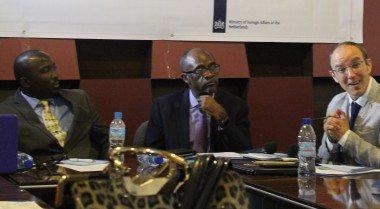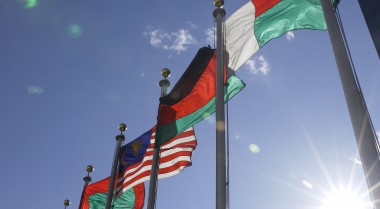
Meeting the Challenge of Peacebuilding and Sustaining Peace Through Partnerships and Inclusivity
The dual resolutions on peacebuilding and sustaining peace adopted in April 2016 by the United Nations (UN) Security Council and General Assembly (S/RES/2282; A/RES/70/262) marked a fundamental shift in the UN's understanding of peacebuilding. Before peacebuilding was understood as taking place after conflict. However, by declaring sustaining peace as "a goal and process… aimed at preventing the outbreak, escalation, continuation and recurrence of conflict," Member States now universally recognize that efforts to build peace must be taking place before, during and after conflict.
Starting in 2017, the Quaker United Nations Office (QUNO) and The Global Partnership for the Prevention of Armed Conflict (GPPAC) undertook a dynamic research project to increase the practical understanding of what sustaining peace means; assess the progress and remaining challenges facing peacebuilding practice; and articulate recommendations for the way forward. The research led to a joint report, Building Sustainable Peace: How inclusivity, partnerships and a reinforced UN Peacebuilding Architecture will support delivery.
To share their findings, on 9 March QUNO and GPPAC organized an informal conversation amongst Member States and UN colleagues to reflect on how inclusivity is and can be fostered, and how partnerships for building peace are practically developed and sustained. The event, titled Meeting the Challenge of Peacebuilding and Sustaining Peace Through Partnerships and Inclusivity, focused the challenges that hinder peacebuilding on the ground and at the regional and international levels. The meeting also provided an opportunity for peer to peer learning amongst participants as they shared examples of inclusive programming and reflected on challenges that have or continue to occur when seeking to develop and implement inclusive, partnership-based peacebuilding policies.


